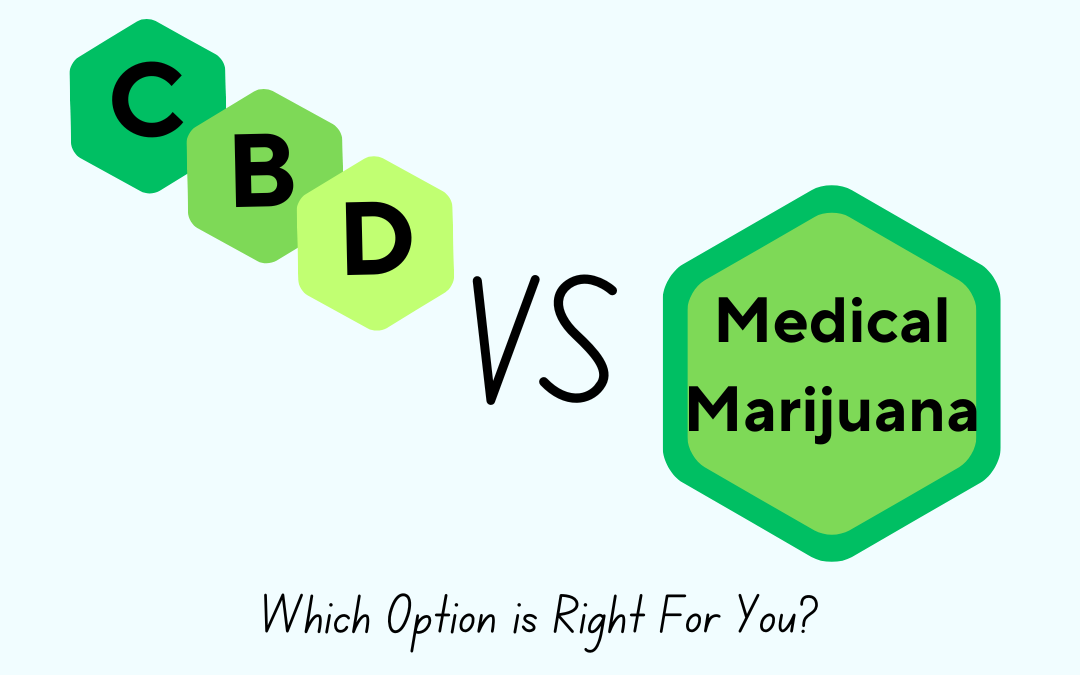When assessing the potential use of cannabis-derived products for health purposes, it is essential to differentiate accurately between cannabidiol, or CBD, and medical marijuana. Both have become popular, but the evidence to support safety and efficacy of cannabis is solid whereas for CBD it is not. Hence, these drugs should always be used under the guidance of informed medical professionals such as Jordan Tishler, MD.
This discussion will focus on these differences, particularly emphasizing the current understanding of CBD’s safety concerns and limited efficacy data for adult conditions compared to the broader applicability of medical marijuana.
Understanding CBD and Medical Marijuana
CBD is a non-psychoactive compound found in both hemp and cannabis. Hemp is just a variety of cannabis plant that has been bred to produce low-to-no THC (tetrahydrocannabinol). Often vilified for causing marijuana’s psychoactive effects, THC is actually the main medicine with over 70 years of medical research to back its use. While CBD does not induce a high and is frequently marketed as a health supplement, evidence to support its use in adult conditions remains elusive.
Medical marijuana refers to the therapeutic use of the marijuana plant or its basic extracts, which may contain varying levels of THC and CBD. This form of treatment is recognized for managing and alleviating symptoms of several severe conditions.
Medical Benefits and Concerns of CBD and Medical Marijuana
While CBD has gained popularity for a variety of health claims, robust scientific evidence supporting its effectiveness in adults is conspicuously lacking. Critical considerations include:
- Limited Efficacy: Unlike its proven effectiveness in certain rare pediatric epilepsy conditions, CBD has not demonstrated significant, consistent benefits for adult conditions in controlled studies.
- Health Risks: CBD has potential side effects, including interactions with various medications and a noted risk of liver toxicity, particularly at high doses.
- Hemp-derived CBD products are presently unregulated and have been found to contain large amounts of contaminants and potential toxins.
Given these concerns, the recommendation for adults is not to use CBD dominant products (trace amounts of CBD in THC-dominant products is not only ok, but necessary). If someone is going to use a CBD product despite these warnings, it should always be from a state-legal, regulated source, not the internet.
In contrast, medical marijuana, which contains both CBD and THC, is recognized for its efficacy in treating a range of serious medical symptoms and conditions, including:
- Mild to Moderate Pain: THC has substantial evidence supporting its use in managing chronic pain and is a good alternative to, or adjunct to, opioid medication.
- Muscle Spasticity: Neurodegenerative conditions like multiple sclerosis (MS) or ALS can benefit from THC’s muscle relaxation properties.
- Nausea and Appetite Stimulation: THC is notably effective in alleviating chemotherapy-induced nausea and stimulating appetite in patients with serious illnesses.
- Insomnia: Conventional medications for sleep disturbances are few and less effective than we would like. Recent evidence demonstrates that low-dose cannabis can be very effective for insomnia without REM suppression.
- Mood Disorders: While evidence for mood disorders is less robust than other diagnoses, there is ample evidence that cannabis can be helpful if used sparingly and correctly. It is important to note that day time use and high doses have been shown to backfire and make mood disorders worse.
Choosing the Best Option
When considering CBD versus medical marijuana, several factors must be weighed:
- Medical Efficacy: The lack of substantial evidence supporting CBD’s effectiveness in adult conditions makes medical marijuana, with its broader and more documented benefits, often a more suitable option for serious medical issues.
- Legal Considerations: Both substances face legal restrictions that vary by location, but CBD’s legal status does not imply safety or effectiveness.
- THC Sensitivity: For adults sensitive to THC’s psychoactive effects, the decision becomes more complex, although THC’s health benefits may outweigh the psychoactive side effects for some patients.
For adults considering cannabis-derived treatments, medical marijuana often offers more reliable benefits compared to CBD, especially given the current scientific evidence regarding CBD’s limited efficacy and potential risks.
It’s crucial for individuals to approach CBD with caution and seek professional medical advice before integrating it into their health regimen. The decision should always be informed by a comprehensive evaluation of the available evidence and personalized medical insights.
Consulting with a Healthcare Provider
Before starting any treatment, including CBD or medical marijuana, consultation with a healthcare provider is crucial. Physicians like Jordan Tishler MD, who specialize in medical cannabis, can provide informed, condition-specific advice that considers both the potential benefits and risks.
Consult with a Qualified Boston Medical Marijuana Expert Today.
Those considering using THC, CBD, or any type of medicine found in cannabis to help manage their condition should consider speaking to a trained medical expert who is knowledgeable about using cannabis therapeutically. Massachusetts medical marijuana doctor Jordan Tishler, M.D. sits on the faculty of Harvard Medical School and has years of experience helping patients treat pain and other ailments using cannabis. He and the team at InhaleMD stand ready to assist patients in determining whether medical marijuana is right for them.
For more information, or to set up a virtual consultation with the team at InhaleMD, call us at (617) 477-8886 today.

